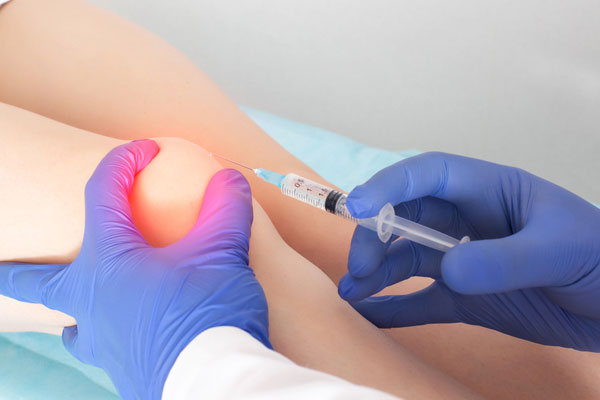
Steroid injections are also called corticosteroid injections by medical professionals. They are commonly used as an anti-inflammatory medication to treat a wide range of inflammation conditions at the base.
Corticosteroid injections include hydrocortisone, triamcinolone and methylprednisolone, so if you hear your doctor mention these or see any of these names written on your notes, they refer to a type of steroid injection. Doctors will use corticosteroid injections most commonly to treat arthritis, sciatica, inflammatory bowel disease, and joint pain. Trained medical professionals can only administer steroid injections, so you should be wary of steroid injections being offered in a non-clinical setting.
The steroids used in injections replicate the hormones typically produced by the adrenal glands. They act to reduce inflammation, which can help to relieve pain and joint stiffness.
How steroid injections are administered
Your doctor or specialist will administer the steroid medication by injection, usually directly into or close to the affected joint or area that needs treating. Steroid injections can be administered in several ways, including:
• Into a joint (an intra-articular injection)
• Into a muscle (an intramuscular injection)
• Into the blood (an intravenous injection)
• Into the spine (an epidural injection)
Depending on what condition is being treated, steroid injections can work within a few hours to a few days after administration. In most cases, steroid treatment will be effective and provide relief from symptoms for a few months.
Pain relief steroid injections
If your doctor is treating you with pain relief and corticosteroids, they may give you a steroid injection that incorporates a pain killer in the form of a local anaesthetic. This will provide you with immediate pain relief and can last most of the day. Steroid injections do not require hospitalisation, so you should be able to return home soon after your treatment. It would be best to rest the joint or area being treated for a few days following your treatment.
Who can benefit from steroid injections?
Steroid injections are safe for almost everyone and are commonly used by doctors and pain specialists to treat a wide range of conditions. However, there may be some circumstances where you are not suitable for steroid injections. These include:
• If you have already had steroid injections in the past few weeks, or you have had three steroid injections within the past year
• You have experienced an allergic reaction to previous steroid injections
• You are currently ill or have an infection
• You have been recently vaccinated
• You are pregnant, trying for a baby or breastfeeding
• You have a pre-existing health condition such as liver, heart or kidney problems, you have diabetes, have high blood pressure, or you have epilepsy.
It would help if you also inform your doctor about any other prescription, herbal or over the counter medications that you are currently taking.
Article by Dr. Naveen Bhadauria



